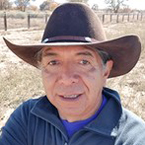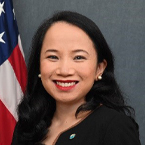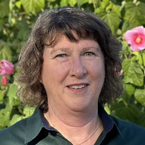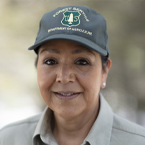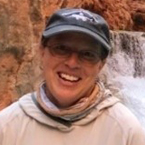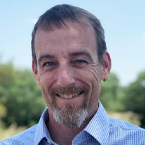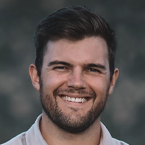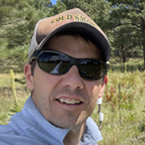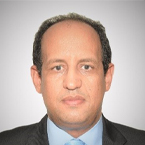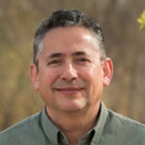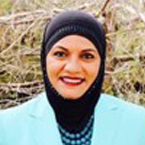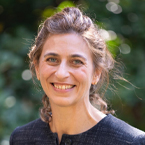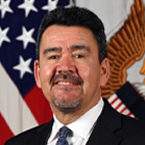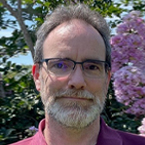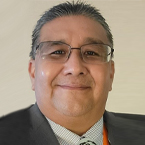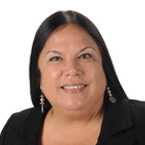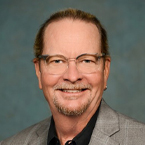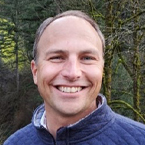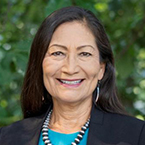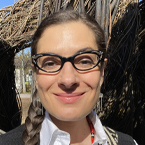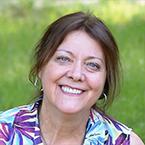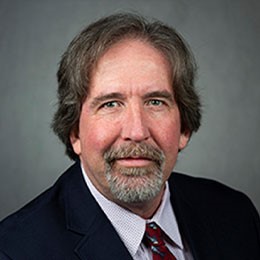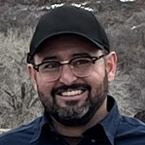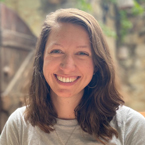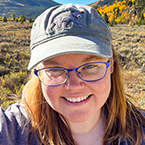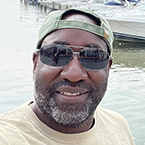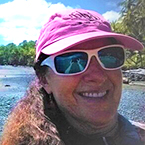Plenary Sessions
In addition to breakout sessions with technical presentations, NCER features daily plenary sessions with speakers addressing the many pressing challenges faced by restoration professionals across the U.S. We are pleased to bring you an impressive lineup of accomplished individuals who will inform us, inspire us, and sharpen our vision for future restoration success across diverse landscapes.
Monday, April 15, 2024
8:30am–5:30pm
Regional Plenary on the Desert Southwest
In keeping with tradition, NCER kicks off with a plenary session featuring a full day of talks focused on the region in which we are meeting. This year, our Desert Southwest location entails the Colorado River/Río Colorado and Rio Grande/Río Bravo basins, which include several states in the United States and Mexico as well as dozens of Tribal nations, from more than 14,000 feet above sea level to estuaries in the Gulf of California and the Gulf of Mexico.
Speakers will introduce us to the ecosystems, climate, and hydrology of the Southwest from diverse perspectives:
- A Native American speaker will provide the kickoff keynote presentation with an ecological and cultural overview of the region from a tribal perspective.
- Three sessions will follow, discussing key challenges and restoration opportunities in the context of water resources, climate change, fire, and invasive species.
- A speaker from the United Nations Convention to Combat Desertification will discuss how the challenges prevalent in the Southwest are representative of global challenges being addressed by the G20 Global Initiative on Reducing Land Degradation and Enhancing Conservation of Terrestrial Habitats.
- Finally, our closing keynote speaker of the day will discuss the challenges of balancing water management for ecosystems, agriculture, and human communities from the perspective of the Bureau of Reclamation, the second largest producer of hydropower in the United States. Reclamation is charged with helping the Western States, Native American Tribes, and others meet new water needs and balance the multitude of competing uses of water in the West while protecting the environment and the public's investment in water management infrastructure.
There will be ample time for questions and interaction with presenters to explore the applicability of how restoration and conservation challenges in the region relate to your area of practice and the broader NCER community.
We are also pleased to recognize the diverse group of restoration professionals who worked diligently over the past several months to develop a compelling agenda.
8:30am
- Matt Grabau, NCER Conference Chair, and Adaptive Management Group Manager, Bureau of Reclamation, Lower Colorado River Multi-Species Conservation Program, Tucson, AZ
- Matt Whiles, Department Chair, University of Florida, Soil, Water and Ecosystem Sciences, Gainesville, FL
8:45am
Moderators:
- Sharon Hausam, Climate Adaptation Planner & Research Scientist, South Central Climate Adaptation Science Center, Albuquerque, NM
- Jake Palazzi, New Mexico Tribal Liaison, South Central Climate Adaptation Science Center, Albuquerque, NM
Opening Keynote Speaker:
- "Setting the Stage for Restoration: A Tribal Perspective on Historic and Contemporary Ecosystems and Culture in the Southwest"
Blane Sanchez, Former 2nd Lieutenant Governor, Pueblo of Isleta (Jan 2021 - Dec 2022); and Former Commissioner, New Mexico Interstate Stream Commission, Isleta, NM
Mr. Sanchez will describe professional and personal experiences, providing commentary from 40 years of direct and indirect involvement with ecosystem restoration in the region. Topics will include grazing management, water resources planning, and “Bosque” (riparian) and riverine habitat. He will also provide his perspective on the realities of contemporary ecosystem restoration, alternative energy development considerations, and the potential to connect efforts to combat degradation across landscapes.
9:30am
Coffee Break
10:00am
Session Description:
Moderators:
- Leslie Hay, SW Region Wildlife Program Leader, U.S. Forest Service, Albuquerque, NM
- Genevieve Allan, Planning Group Supervisor, Bureau of Reclamation, Albuquerque, NM
Presenters:
- "Managing Southwestern Forests in a Changing Climate"
Matt Hurteau, Professor, Dept. of Biology, University of New Mexico, Albuquerque, NM - "Planning for Cross-Border Conservation in the Chihuahuan Desert"
Karen Chapman, Coordinator, Rio Grande Joint Venture (RGJV), Alpine, TX - "Engaging Underserved Communities in Urban Restoration"
Jennifer Owen-White, Refuge Manager, Valle de Oro National Wildlife Refuge, U.S. Fish and Wildlife Service, Albuquerque, NM
11:30am
How the G20 Global Land Initiative is Addressing the Challenges of the Southwest at the Global Scale
Session Description:
Moderator:
- Matt Grabau, NCER Conference Chair, and Adaptive Management Group Manager, Bureau of Reclamation, Lower Colorado River Multi-Species Conservation Program, Tucson, AZ
Presenter:
- Mohamed Abd Salam EL Vilaly, Programme Officer - Information Management, United Nations Convention to Combat Desertification (UNCCD), UN Campus, Bonn, Germany
12:00pm
Lunch on Your Own
1:30pm
Session Description:
Moderators:
- Genevieve Allan, Project Management Specialist, Bureau of Reclamation, Albuquerque, NM
- Elroy Masters, National Wildlife Program Lead, U.S. Bureau of Land Management, Washington, DC
Presenters & Panelists:
- "Overview of the Bureau of Reclamation's Management of the Rio Grande"
Jennifer Faler, Albuquerque Area Office Manager, Bureau of Reclamation, Albuquerque, NM - "Partnerships to Provide Water for Agriculture and Ecosystems along the Middle Rio Grande"
Casey Ish, Conservation Program Supervisor, Middle Rio Grande Conservancy District, Albuquerque, NM - "Environmental and Cultural Flows for the Colorado River in Mexico"
Francisco Zamora, Senior Director of Programs, Sonoran Institute, Tucson, AZ
3:00pm
Coffee Break
3:30pm
Session Description:
Moderators:
- Becky Kirby, Southwestern Region Wildlife Ecologist, U.S. Forest Service, Albuquerque, NM
- Anna Weinberg, Aquatic Restoration Coordinator, Conservation and Adaptation Resources Toolbox/University of Arizona, Tucson, AZ
Presenters:
- "Innovative Tools to Monitor Invasive Grasses and Restore Dryland Ecosystems"
Seth Munson, Research Ecologist, U.S. Geological Survey, Flagstaff, AZ - "A Balancing Act: Managing Native and Non-Native Fish in Grand Canyon National Park"
Sarah Haas, Deputy Chief, Science & Resource Management, Grand Canyon National Park, National Park Service, Flagstaff, AZ - "Non-Native Horses and Burros in the Southwest"
Tolani Francisco, Wild Horse and Burro Coordinator, U.S. Forest Service, Southwestern Region, Albuquerque, NM
4:50pm
Moderator:
- Matt Grabau, NCER Conference Chair, and Adaptive Management Group Manager, Bureau of Reclamation, Lower Colorado River Multi-Species Conservation Program, Tucson, AZ
Closing Keynote Speaker:
- "Historic and Contemporary Water Management in the West"
Roque Sánchez, Senior Advisor, Bureau of Reclamation, Washington, D.C.
Closing Remarks and Wrap-up
5:30pm
Welcome Networking Social
Tuesday, April 16, 2024
8:30am–10:00am
Large Scale Restoration - National Perspectives
Session Description:
Moderators:
- Fahmida Khatun, Hydrologist/H&H Modeler, Restoration Sciences Branch, South Florida Natural Resources Center, National Park Service, Boynton Beach, FL
- Gina Paduano Ralph, Science Integration Branch Chief, Planning Division, U.S. Army Corps of Engineers (USACE), Jacksonville, FL
Presenters:
- Sarah Greenberger, Associate Deputy Secretary, U.S. Department of the Interior, Washington DC Area
- Honorable Michael Connor, Assistant Secretary of the Army, Civil Works
Wednesday, April 17, 2024
8:30am–10:00am
Tribal Perspectives on Ecosystem Restoration
Session Description:
Moderators:
- Darcy Austin, Science Manager, State Water Contractors (SWC), Sacramento, CA
- Chad Smith, Headwaters Corporation, Kearney, NE
Presenters:
- Aimee Roberson, Director, Southwest Region, American Bird Conservancy, Rio Arriba County, NM
- Tina Marie Osceola, Director, Tribal Historic Preservation Office, Seminole Tribe of Florida, Naples, FL
Thursday, April 18, 2024
4:30pm–5:30pm
Closing Plenary with Keynote Speaker
Moderators:
- Nick Aumen, Regional Science Advisor, South Florida Region, U.S. Geological Survey, Davie, FL
- Matt Grabau, NCER Conference Chair, and Adaptive Management Group Manager, Bureau of Reclamation, Lower Colorado River Multi-Species Conservation Program, Tucson, AZ
Closing Keynote Speaker:
- Secretary Deb Haaland, U.S. Department of the Interior, Washington, D.C.
